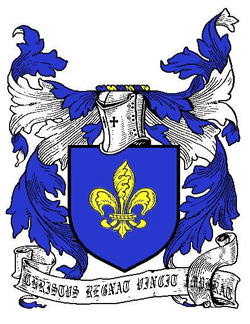France
“I speak Spanish to God, Italian to women, French to men, and German to my horse.”
– Charles Quint
Albion’s alliance with France has lasted more than two generations now, though the warmth of the alliance has certainly varied over that period. A common enmity against powerful Spain has been the foundation of this friendship, though the marriages between Princess Marguerite and Prime Minister Milton and now between King Matthew himself and Princess Joanne have helped to bring personal warmth (and some guarantee of continuity) to the long standing pact.
France After the Flood
Normandy and other Northern regions have been the most affected and France has suffered less than than some. Rennes and Caens are island fortresses and Paris is half-flooded, now a burgeoning port city, Bordeaux could not be saved and was sunk on purpose to prevent it from falling into the hands of invading Spaniards. It is, for sunken treasure, almost as famous as London.
Many new waterways are in existence and sea and river transport has grown significantly, rivalling even the Guild of Navigators for popularity and spread.
More fortunate than England, France has nevertheless suffered significantly from the floods and, like its Archipelago cousin, began to adapt to a more nautical Kingdom. To this end the King of France has begun more than any other affected country to finance and develop learning related to the seas and oceans.
The Regency of Queen Anne
Unfortunately the current status of the alliance is unclear. King Louis XIV of France passed away in the spring (the normally rumours of assassination and conspiracy attended his death but no more than at the death of any other reigning monarch) and his throne is now held by his wife, Anne of Austria, until such time as the Dauphin reaches the age of majority.
Although notionally a Princess of Austria, Anne was brought up in Spain, and became the wife of the late King as part of a misjudged and short-lived peace with Spain. Their arranged marriage was always cold and distant, with the two living apart for much of their lives. It surprised many when after a series of miscarriages she finally bore a son, Louis, and she has never succeeded in suppressing the rumours of his illegitimacy (though the King certainly believed him to be his).
This reflects her own great unpopularity. She has always been viewed as a foreigner and a lackey of the Spaniards who devastated France at the start of the century. Her correspondence with her brother Philip IV of Spain during the wars of the 1630s was suspected of exceeding the bonds of familial loyalty, with enough cause that Richelieu forced her to sign covenants regarding her correspondence, which was henceforth open to inspection.
Even worse, from the perspective of Albion, is that she has long held a hatred for the Archipelago beyond that of many Spaniards. If it were not for the peace treaty that King Henry IX extracted from Spain she would have been entitled to the title Princess of Navarre. A vain woman she has always regarded this as an affront to her dignity, and has amply illustrated this with a thousand slights to the Albion ambassador.
Fortunately the low esteem with which she is regarded limits her power. However Spanish gold has increasingly allowed her to enforce her unpopular orders. It was certainly the means by which she persuaded the weak Parlement de Paris to disregard the will of the late king, which would have limited her powers as regent.
Cardinal Mazarin
The protégé of the respected or at least feared Cardinal Richelieu, Cardinal Mazarin is cut from a different cloth. He has become the power behind the throne, like his late master, but where Richelieu was imperious and arrogant Mazarin is a more reasonable and modest man. Even those who opposed Richelieu most fiercely have found some kinds words to say about Mazarin. In large part this is because he has always put France first; he is known to oppose the Queen’s flirtations with Spain and has himself resisted the commands of the Papacy (reinforcing the broad streak of independence characteristic of the bishops of France). Couple with this is an iron grasp of the treasury, which he has managed to make far more efficient than his predecessors. The burden of taxation in France is heavier and less fair than that of Albion, but Mazarin has at least managed to make collection reliable which has prevented the need for large levies which antagonise the nobles and commoners alike.
Mazarin has also continued the French throne’s long-standing policy of moderation and froideur towards the Protestant Huguenots. France has never suffered the religious massacres and civil wars of Albion and the Germany, but it is a staunchly Catholic country and the presence of the Huguenots has always rankled with the government. Rather than fire or exile though the Protestants have been subject to a thousand petty bureaucratic iniquities which has sapped their strength. Their numbers have slowly dwindled over the decades as they have moved to more welcoming kingdoms or the weak of faith have decided to at least act Catholic. They are now only a strong political force in the northeast of the country. Unfortunately the Queen wishes to replace this policy of deliberate neglect with more forceful and punitive methods. If Mazarin’s power weakens it is likely to be felt first by the Protestants of France, a situation which is likely to only antagonise the souring relationship with Albion further.
Rumours
- Mazarin's hold over the Queen is weakening, and when it's gone? Well, then Albion will get to fight the French and Spanish together.
- The Queen's marked for death, her and the rest of her Court, the revolution is coming…
- Everyone thinks France is a Catholic country but who are her allies? How much attention does she pay the Pope? The Huguenots haven't fled the country, they've taken over the government!


